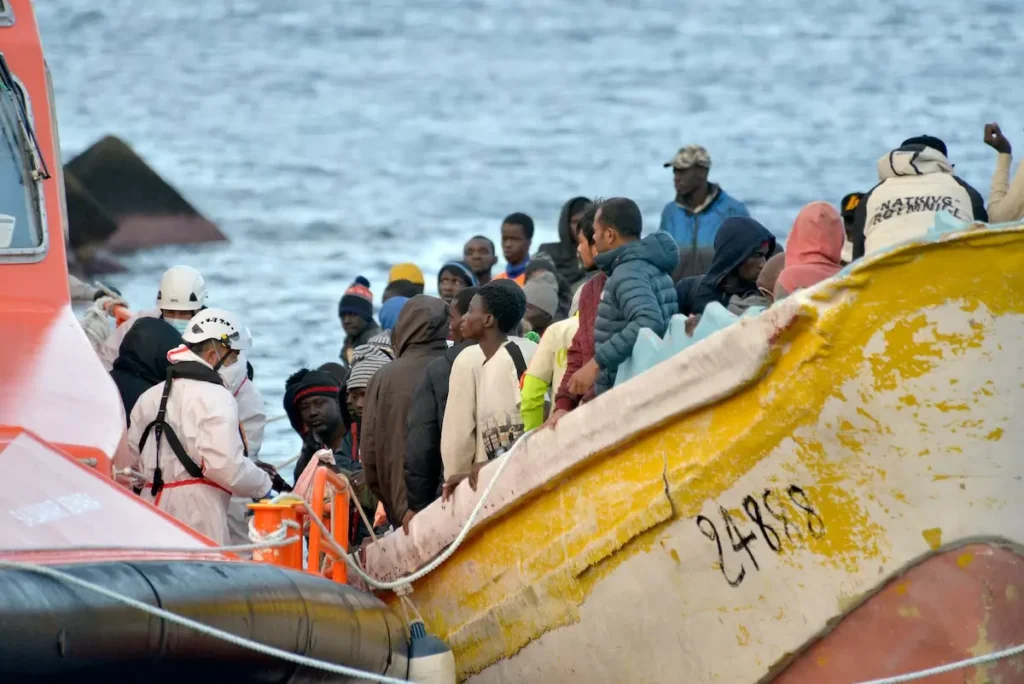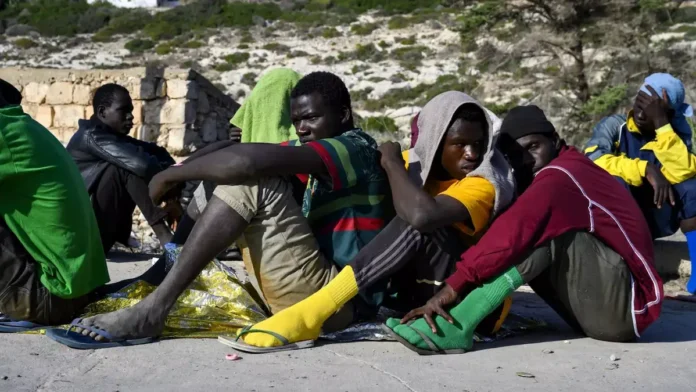EU migration breakthrough: European Union Reaches Landmark Migrant Policy Agreement Amid Rightward Shift.
The European Union reached a significant agreement on migrant policy on Wednesday, a political arrangement that reflects a larger, rightward movement across Europe.
The full terms of the agreement, negotiated after years of deliberation and days of grueling meetings, have yet to be revealed, and the plan must yet be legally confirmed. However, it will likely alter several areas of how the EU handles migration, including border monitoring and the length of time migrants may be held.
“Migration is a common European challenge — today’s decision will allow us to manage it together,” tweeted European Commission President Ursula von der Leyen.
The union’s 27 members have long battled to establish common ground on the subject. After the epidemic years, when migration disappeared off political agendas, especially in the face of travel restrictions and closed borders, the topic surged back to campaign stages and elections, bolstering E.U. efforts.

Even though the EU responded quickly to accept millions of primarily white, Christian migrants from Ukraine in the aftermath of Russia’s 2022 invasion, it still appears to be intent on keeping people entering from outside out. An increase of arrivals over the last year has fueled the politics of asylum and refugee policy, raising the topic in many capitals.
Anti-migrant voter anger pushed the far right to new successes in social liberalism bastions such as the Netherlands while dominating political discussion in France, Germany, Italy, Britain, and elsewhere.
- 2026 Winter Olympics Locations: Amazing Guide to Milano Cortina
- Bryan Kohberger: Idaho Murders Uncovered
- ‘It’s Perplexing. It’s Painful’: Kohberger Sister Breaks Silence in NYT Interview
- In the Idaho Murders, Her Brother Admitted Guilt. Now Bryan Kohberger Sister Speaks
- George Kittle Injury Update: George Kittle Unlikely to Play in Crucial 49ers-Bears Clash
The continent had a 17 percent increase in irregular arrivals during the first 11 months of 2023 compared to the same time the previous year. The over 355,000 arrivals were the biggest since 2016 when the area experienced a historic surge spearheaded by refugees fleeing the Syrian civil conflict.
Top European officials hailed the accord as a victory for Europe and those desperate – and often dangerously – attempting to reach its shores.
“It means that Europeans, not smugglers, will decide who comes to the EU and who can stay.” “It means looking after those in need,” von der Leyen explained.
Dutch Prime Minister Mark Rutte called the deal “historic” and said it will help Europe to “gain more control over migration, for example, through better, faster asylum procedures at the E.U.’s external borders.”
Human rights groups, however, have slammed the new regulations, claiming that they erode safeguards for asylum seekers and refugees and put newcomers at risk. They are particularly concerned about efforts to expedite the processing of asylum requests at the border.
“This agreement will set European asylum law back for decades to come,” Amnesty International stated. “Its likely outcome is a surge in suffering on every step of a person’s journey to seek asylum in the E.U.”
- 2026 Winter Olympics Locations: Amazing Guide to Milano Cortina
- Bryan Kohberger: Idaho Murders Uncovered
- ‘It’s Perplexing. It’s Painful’: Kohberger Sister Breaks Silence in NYT Interview
- In the Idaho Murders, Her Brother Admitted Guilt. Now Bryan Kohberger Sister Speaks
- George Kittle Injury Update: George Kittle Unlikely to Play in Crucial 49ers-Bears Clash
